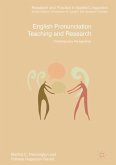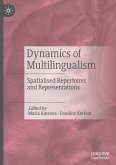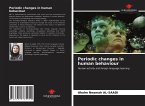This book explores the dynamics of language changes from sociolinguistic and historical linguistic perspectives. With in-depth case studies from all around the world, it uses diverse approaches across sociolinguistics and historical linguistics to answer questions such as: How and why do language changes begin?; how do language changes spread?; and how can they ultimately be explained?
Each chapter explores a different component of language change, including typology, syntax, morphology, phonology, semantics, lexicology, discourse strategies, diachronic change, synchronic change, how the deafblind modify sign language, and the accommodation of language to song. This book presents a comprehensive analysis of the dynamics of language change over time, simultaneously advancing current research and suggesting new directions in sociolinguistic and historical linguistic approaches.
Each chapter explores a different component of language change, including typology, syntax, morphology, phonology, semantics, lexicology, discourse strategies, diachronic change, synchronic change, how the deafblind modify sign language, and the accommodation of language to song. This book presents a comprehensive analysis of the dynamics of language change over time, simultaneously advancing current research and suggesting new directions in sociolinguistic and historical linguistic approaches.








